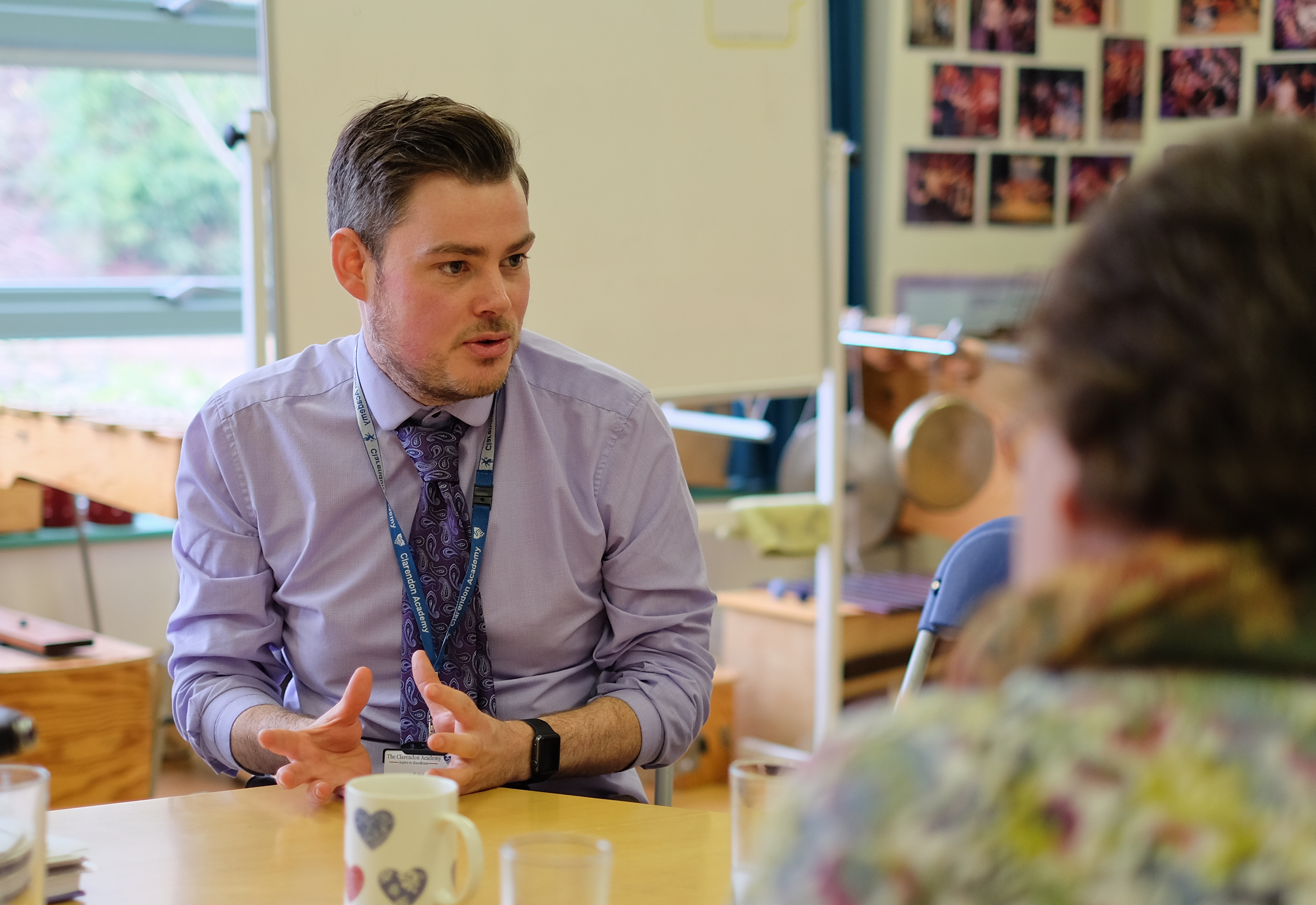
Teacher Tom Nolan explains how he has approached research and development in his role as a specialist leader of education (SLE).
Tom has been a specialist leader of education for 3 years, specialising in PHSE and citizenship. Tom’s work as an SLE is cross phase and he’s been involved in developing a learning community, as he explains:
I’ve always been involved in research and sharing best practice, so as an SLE I can go into lots of different schools and share my experiences and learn from those experiences. A good part of the role is that you can run your own learning communities, so the appeal for me was that I can do cross-phase work between KS2 and KS3 and share best practice, shifting curriculums to cover the right stuff at the right time, rather than just following the National Curriculum – and making it Wiltshire based.
Identify the “why”
When it comes to research and development, the most important thing is to have a clear understanding of why research is being carried out. It’s important to be clear on why you are doing this - often people start with the ‘what’ but if you don’t have the ‘why’ at the centre of the work and a clear reason to carry out the work; the end result will never be at the heart of student progress.
Sharing best practice
Tom set up a learning community to share and discuss what was going on in PHSE and citizenship. There are 6 sessions a year, to which all the schools in the local area are invited.
They set the agenda for the sessions by identifying the issues in Wiltshire at that point and, from that, developing a set of actions to take forward, including research. One of the more recent sessions was on internet safety and the use of mobile phones, and together the learning community created a parent’s session that they would each deliver at their schools.
The learning community - all schools in Wiltshire - are invited and currently 15 of them, that’s half of all primary and secondary in the area, are actively engaged, and it’s growing. The information is circulated to all schools in the area and we’re proud that the schools that weren’t so engaged initially with PHSE citizenship are now really engaged.
Problem solving
Tom reached out to those that were less engaged to identify the barriers, and it became clear that time was the issue. As a result, Tom developed a set of lessons that were 10-15 minutes long, so they could be delivered effectively within that time.
At Tom’s school, The Clarendon College, there is a focus on research and development, and all staff are provided with an hour every 2 weeks to engage in active research. Tom’s faculty used this time researching C/D borderline students at KS5 in PHSE, as limited research is available in this area, current literature is outdated, and there is a real issue that needs addressing with low ability sixth formers.
Tom led a team to undertake “student voice work”: asking students what they find difficult, what they find easy, and have implemented year 11 techniques into the sixth form and delivering whole-school CPD on those types of techniques. The success of this open, whole-school approach has led to Tom delivering presentations at ‘teach meets’, informal meetings for teachers to share good practice.
The team has also done lots of activities and set up learning development groups where they meet and discuss what issues are being raised and try to solve them as a group. This research has had a big impact on progress for those students and their dropout rate and the fail rate have significantly declined.
Leadership progression
Tom’s school delivers the National Professional Qualification for Middle Leadership (NPQML), and 7 members of staff have undertaken the qualification. As part of this, each of them have been given a specific area of the school to lead at a senior level. Tom is looking at the sixth form, while other members of staff are responsible for parental engagement, use of homework and also debate and discussion. Tom and his colleagues are part of the Cabot Learning Federation NPQML sessions which are all research based, and get involved in reading groups where they learn and get involved in discussions about research.
Part of Tom’s project is to share research with everyone in the school. He has also taken part in a NPQML ‘teach-meet’ for staff from his school and other schools to share what they have learnt on the NPQML programme. This is a cost effective way to share CPD and ensure that all staff are getting to learn from their findings. It also helps to develop the leadership of other staff members, including those just starting out in their teaching career.
About Tom Nowlan
Tom Nolan is the Head of Faculty for social sciences (including sociology, psychology, philosophy, politics) and extending the curriculum in terms of careers information, guidance and PSHEE citizenship.
Leave a comment